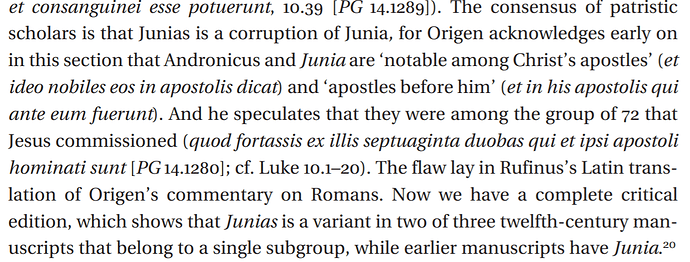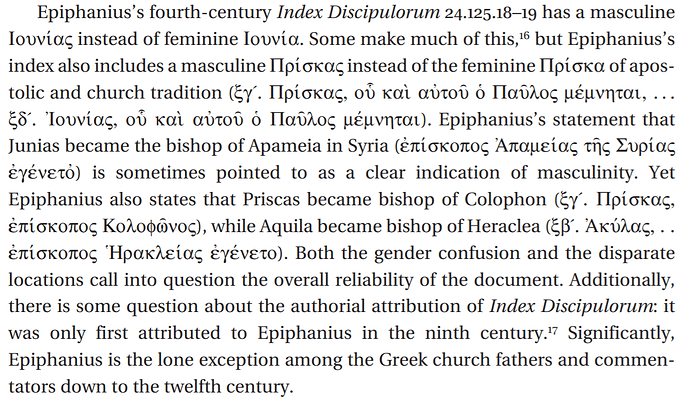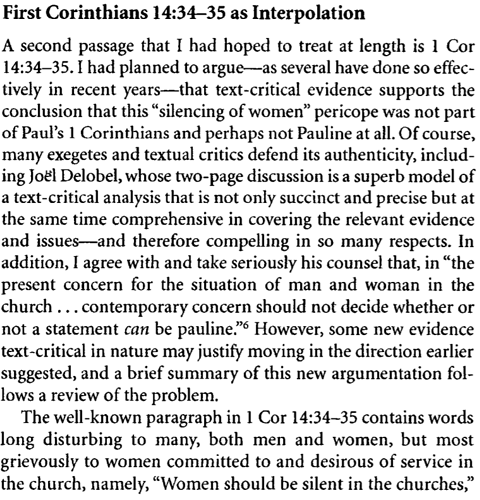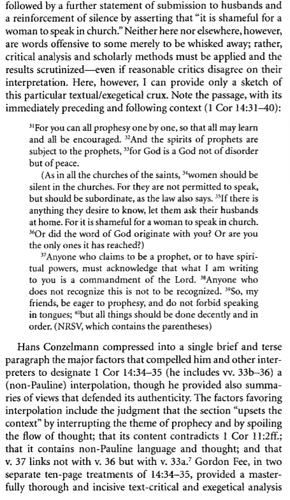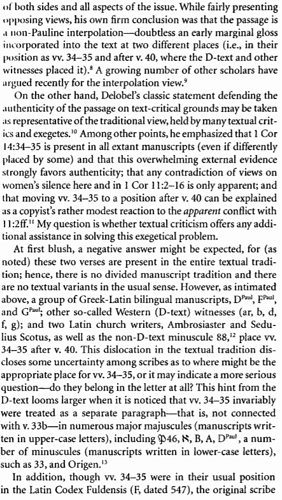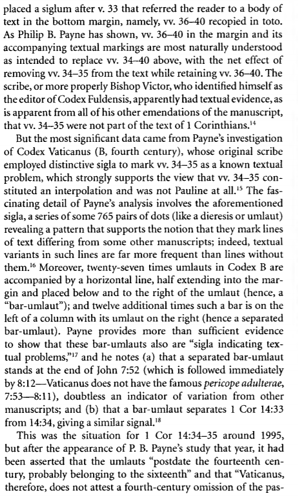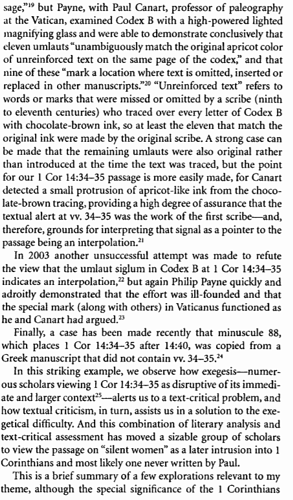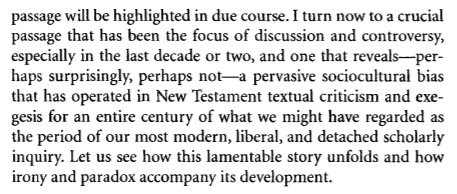Again a few things.
This will probably be my last response to you. You seem quite childish and immature. You don’t know how to carry on a discussion. You think that someone has to be an expert in order to have a opinion on a subject. That’s such a ridiculous mindset. You keep acting as “ free software for language study is something crappy” lol.
How do you know what that person’s name was? Are you a Greek scholar? How do you know a scribe changed their name? Which scribe changed the name? Do you have a masters in history with a focus on biblical translations? If not, according to your own words that means you don’t have an actual opinion on it. And if you don’t have a degree in biology, or especially evolutionary biology you can’t have an opinion on the science involved either. Did you study the Hebrew language and get a degree? If not don’t try to talk about genesis… see how silly that argument sounds.
If you want to have a conversation, get control of your emotions and have a conversation. Otherwise I have no time to talk with you. It’s also hypocritical for you to say your unqualified opinion is better than my unqualified opinion. That’s your paradigm by way.
I’m completely comfortable being able to use bublehub and commentaries out together by professionals in order to bring attention to clues in the original language. That’s a fairly common practice among people who seek to know what the Bible says, verses what they feel it should say.
By the way, it was not done scribe several centuries ago that called her a man. It was in the second century. ( this will actually be very amusing for me once you realize who the scribe was verses wrote you stated…)
Can you show a list of early church fathers in the first century that referred to her as someone with the power? I don’t think you even know the significance of that yet. I’ve explained so many times I may as well put on a purple suit.
Also can you show me once, where I referred to her as a man? Have I’ve not been referring to her as a her the whole time… right?
So let’s try this also.
You are saying that a pastor, a elder, an overseer, and a bishop are not all scripturally the same thing? What do you believe the office of eldership is?
What do you believe the office of overseers are?
What’s the difference between a bishop and a pastor again based on the new testament?
Since you must have gotten a degree in church offices and assemblies…
And nothing you said proved anything about something being added later. You just said it was, I’m guessing you must have a degree in how the Bible was put together, and expected me to just accept it lol.
So far you’ve not backed up your claims. You don’t have degrees or are a expert in any of these things either yet you hypocritically claim since I don’t somehow it means I can’t grasp it.
I’ll give you an example, using a free concordance I googled.
The verses in question are: 1 Corinthians 14:34-35
34 Women should remain silent in the churches. They are not allowed to speak, but must be in submission, as the law says. 35 If they want to inquire about something, they should ask their own husbands at home; for it is disgraceful for a woman to speak in the church.
In almost any translation you read there is a mark by women. It’s denotes that the Greek word, gynaikes/guné located in concordances as G1135 can be interpreted as women or wife depending on the context. So the next step is to look at the context. Is there anything in the context that can lead someone with at least half a brain to determine if it means women or wife?
Maybe something like the very next sentence it says that they need to ask their husbands? A simple thought process may help you.
If a woman has a husband that means she’s a… wife.
So that means that a better translation ( regardless of your qualifications) is that the verses read “ 34 wives should remain silent in the churches. They are not allowed to speak, but must be in submission, as the law says. 35 If they want to inquire about something, they should ask their own husbands at home; for it is disgraceful for a woman to speak in the church.
So why is that a better translation outside of the fact of the whole having a husband remark.
Well this is very again, contextual analysis and biblical hermeneutics come in to develop systematic theology.
When we look at the verses leading up to that we see these verses.
1 Corinthians 14:26-33
New American Standard Bible
26 What is the outcome then, brothers and sisters? When you assemble, each one has a psalm, has a teaching, has a revelation, has a tongue, has an interpretation. All things are to be done for edification. 27 If anyone speaks in a tongue, it must be by two or at the most three, and each one in turn, and one is to interpret; 28 but if there is no interpreter, he is to keep silent in church; and have him speak to himself and to God. 29 Have two or three prophets speak, and have the others pass judgment. 30 But if a revelation is made to another who is seated, then the first one is to keep silent. 31 For you can all prophesy one by one, so that all may learn and all may be exhorted; 32 and the spirits of prophets are subject to prophets; 33 for God is not a God of confusion, but of peace. As in all the churches of the saints,
So right before those verses in the same chapter we see Paul mentioning brothers and sisters ( each one) having a message, a song, a prophecy, a tongue and so on). That implies women can speak in church.
So if women can speak in church, then that adds more clues as to why later on he’s talking about wives.
However, you would have a hard time pushing that paul is ok only with single women speaking. So that means he must be ok with single snd married women speaking. If he’s ok with them speaking then that means when he says “wives ask your husbands questions at home” he must , and only can be, referring to specific wives in the congregation that was causing confusion by asking their husbands questions during assembly.
So explain to my why that requires a degree or being an expert in?
Again, that’s not rocket science. It’s not rocket science to use the possible translations of words by scholars overlapped with contextual analysis.
So by all means if you understand this so well let me have it lol.
You say you know they mean different things but yet you keep confusing them.
We were talking about women can’t be elders and you say yeah they can this one was a deacon. What is the relationship there? You think deacons and elders are the same things? You’re also a Greek expert enough to know the issue with servant verses office of deacon too.
So you can just regurgitate snark, or you can try to actually argue your point. For me, I’ve been snarky enough in my last comment or two in hopes you see how pointless it is. Especially the hypocrisy. It’s not my thing. I prefer rational discussions where points are argued. If you’re not interested in that I am not interested in continuing.


